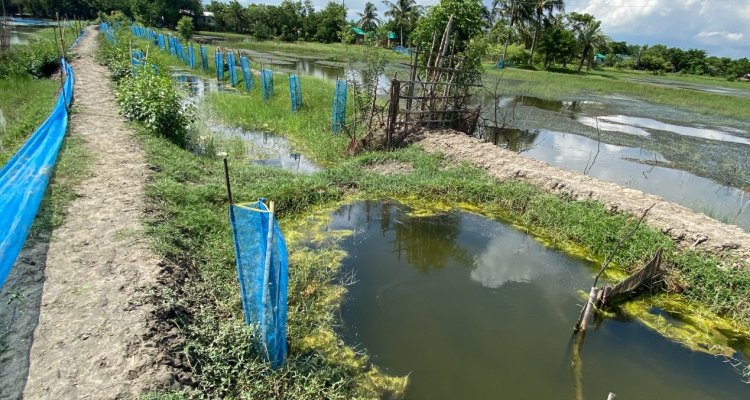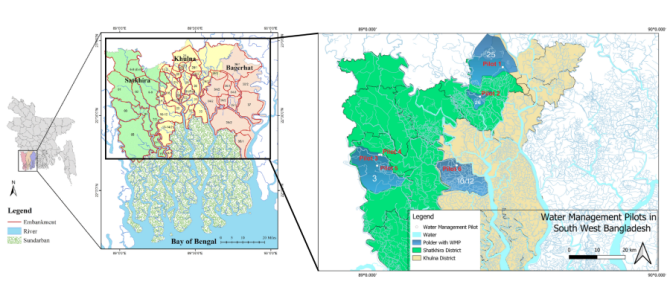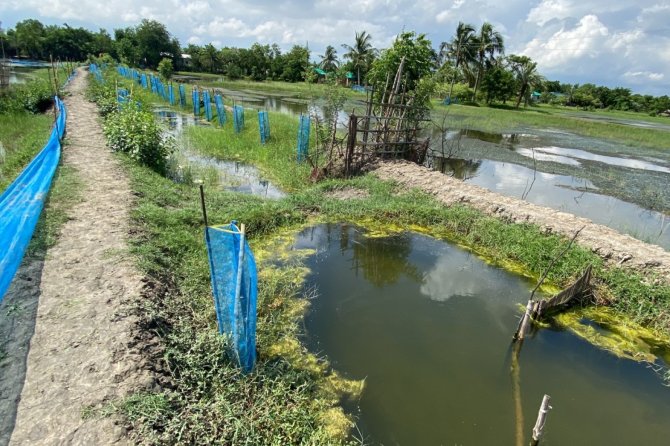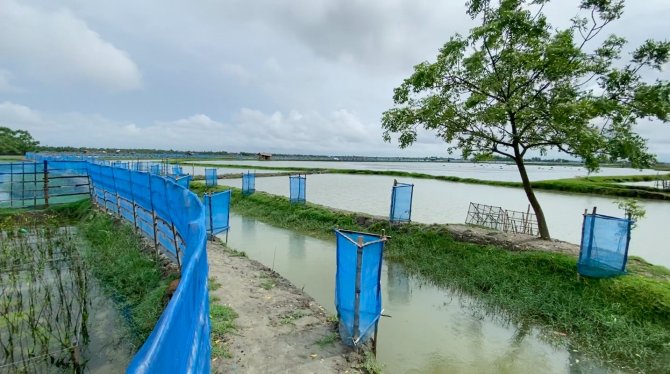
Water management
Food systems are intertwined with water management, particularly in deltas where water is a key factor in shaping society and agriculture. It is thus of vital importance to consider the role of water management in agricultural and food systems transitions. In south-west Bangladesh, canals, locally referred to as ‘khals’, are crucial in this respect; they transport water to fields and ponds, and they enable drainage. Sedimentation limits their water-carrying capacity. This means they have to be continuously re-excavated to maintain agricultural production and livelihoods.
Over the past few years, Solidaridad has piloted canal re-excavation for micro-watershed rejuvenation under the SaFaL-2 project in south-west Bangladesh. Six micro-watersheds have been rejuvenated in this pilot: three in Khulna district and three in Satkhira district. Re-excavating canals, increases their water carrying capacity. This increases the extent they can be used for drainage and irrigation, while simultaneously making transportation easier. The links between water management, food systems and value chains have been studied. A range of factors have been identified, including the fact that scaling is an important characteristic of deltas, which should be taken into account to ensure that the interventions at the micro-watershed level match developments and plans at larger spatial levels. The full report will be available soon.

The pilots show that improving water management at the micro-watershed level can increase livelihood opportunities for local farmers if done in combination with larger scale water management and taking future developments into account. To improve, upscale and popularise this type of local water management, there is an urgent need for stakeholders to understand, consider and deal with the complexities of temporal scale, spatial scale and current as well as future developments.

